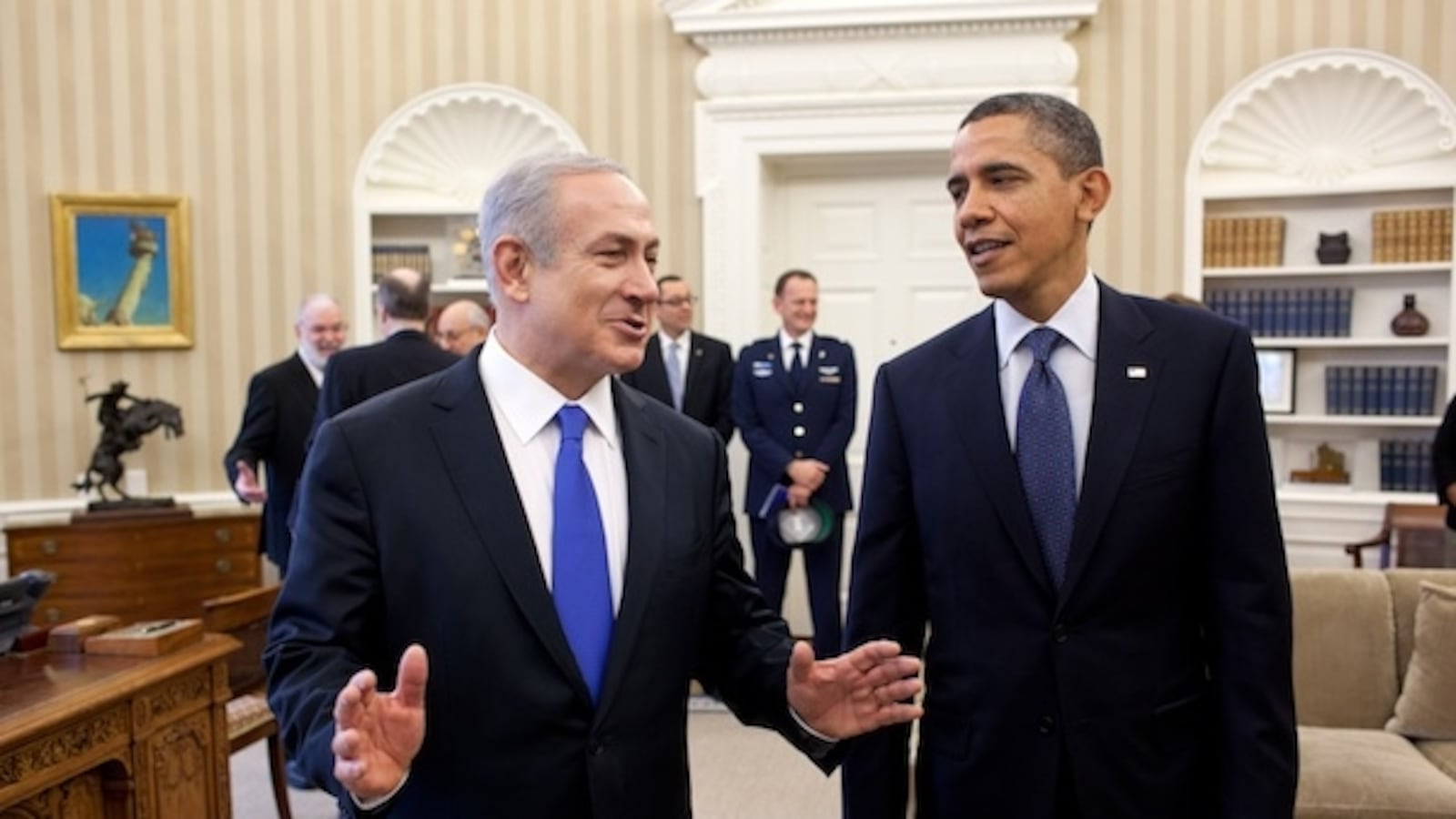The exclusion of a clause in the Democratic platform has now exploded into the biggest issue of the party's National Convention. Democrats, for the first time in who-knows-how-long, left out of their platform a pledge to recognize Jerusalem as the capital of Israel. Neocons erupted with indignation. So did some Democrats who tilt right on Israel issues. Even some Democratic Members of Congress expressed dismay that the plank was removed.
Then something unusual happened: after the criticism, L.A. Mayor Antonio Villaraigosa, the convention chair, took to the podium in Charlotte and called a voice vote of the delegates to restore the 2008 platform recognizing Jerusalem. But not everything went according to plan. A video of the vote shows chaos on the floor: Villaraigosa, looking confused, didn't have the two-thirds majority he needed, and had to call the vote three times. On the third vote, it still sounded about split between the ayes and nos—but Villaraigosa called it for the ayes anyway, prompting boos from the crowd.

"You see changes in platforms on the floor, and you see platform fights. A lot of them are technical," Norman Ornstein, an elections expert at the American Enterprise Institute, told Open Zion. "But it's not a usual phenomenon to see substantive changes." He said adding a tangential mention of "God" back into the platform—as Villaraigosa's motion did—wasn't substantive, but re-adding the language on Jerusalem was.
Though he didn't closely follow the platform drafting process or the subsequent flap, Ornstein said it was clear what the Democrats were up to: "The Republican Jewish Coalition and others were going to turn it into a wedge and they didn't want that."
An interview of an unnamed Democratic official by Foreign Policy's Josh Rogin hints at the problems with reinstating the old language: Obama is a sitting president and as such makes policies with actual consequences. "[W]hen you govern on this issue," the Democrat said, "the official position of the United States has been for years and from administrations of both parties that the status of Jerusalem is a final-status issue."
The nameless Democrat is right: no U.S. administration, despite myriad pledges, has recognized Israeli sovereignty over Jerusalem going back to before even the founding of the Jewish State. But the distinction about a sitting president hasn't stopped other incumbent presidents from pandering: the Democrats' 1996 platform declared Jerusalem the capital of Israel amid Bill Clinton's re-election bid, as did the Republicans' 2004 platform, when George W. Bush sought to retain the White House. (In 2000, the Republican platform promised Bush would "immediately upon taking office" move the U.S. embassy from Tel Aviv to Jerusalem.)
That's probably why Jerusalem expert Daniel Seidemann wrote yesterday in these pages that the omission from the 2012 Democratic platform was "a breath of fresh air": "a small but significant indication that the discussion on Israel and Palestine may be leaving the parallel universe in which it has flourished—in total detachment from the real world—and returning to the universe in which empirical realities matter." What was once fresh suddenly turned stale with yesterday's floor vote.
So what happened? AEI's Ornstein explained: "Sometimes you can have these awkward moments where the policy people and the political people are not in sync. That's what happened here." Rather than sticking by sixty-plus years of U.S. policy, Democrats caved to pressure, not only from right-wingers, but also from among their own ranks—including, reportedly, Obama.
Before last night's voice vote, former Rep. Robert Wexler—who spoke Tuesday night defending Obama's Israel record—told the Jewish Telegraphic Agency's Ron Kampeas, "The president directly intervened to make sure this amendment happened." That's awkward: as Commentary Magazine noted with glee, the White House has refused to even say out loud lately that Jerusalem is the capital of Israel. But a top Democratic official said the change reflected Obama's "personal views" rather than administration policy.
Whether or not Obama played a direct role in instituting or reversing the platform language, one thing remains clear: the Democrats went back to unreality, pandering on the Jerusalem issue. One might be concerned that these positions informed by politics make for bad policy, but this particular position never gets made into policy anyway. It's just too bad the Democrats couldn't be honest about it and hold their ground. It turns out there's been little change on this issue, and perhaps no cause for hope.






